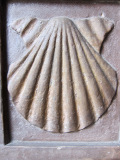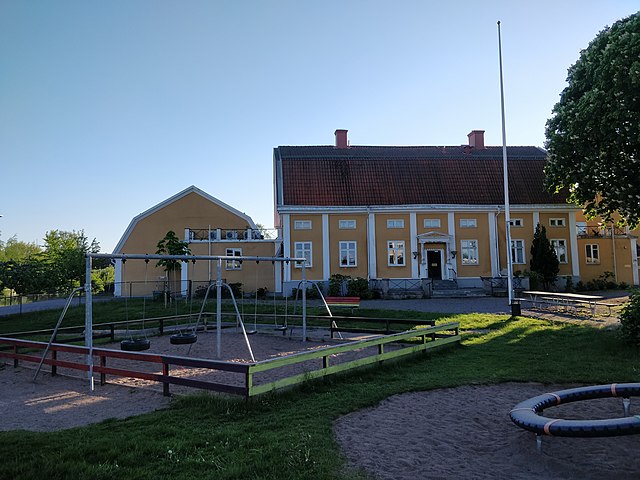Future events
Call for Abstracts - SIEF WG Cultural Perspectives on Education and Learning
On Education and Learning through the Ethnographic Lense. Ethnological, Folkloristic and Anthropological Contributions.
This is a call for a publication focusing on how ethnological, folkloristic and anthropological approaches can contribute to research on education and learning. We welcome abstracts for articles/texts that discuss practices, relations, materiality and everyday life in relation to this. Depending on the number of abstracts submitted the publication will be either a thematic issue in a scientific journal or, possibly, a book.
Our aim is to have a manuscript ready by the end of 2026. The time plan is as follows:
- January 15th Deadline for abstracts
- January 31st Decision on abstracts
- April 20th Zoom workshop with discussions of first text drafts
- August 24-25th Workshop on pre-final version of articles/texts. This will primarily take place on-site possibly at Malmö University.
- November 1st preliminary deadline final articles
Contributions could include for example texts concerned with interpersonal relations (students/educators/parents etc) within educational and learning contexts, as well as texts discussing the role that objects and materiality may play in educational contexts and learning processes. We are also interested in articles dealing with the implementation and negotiation of educational policy in day-to-day settings. The CfA is also open for texts that highlight the significance of the non-written within education and learning, related to for instance story-telling, narratives, folklore or tacit knowledge and to texts that in other ways use cultural perspectives and ethnographic approaches to further the research on education and learning.
Abstracts should be approximately 250 words and state the author and affiliation, preliminary title, aim and research questions. The abstract should also briefly describe the theoretical and methodological starting points as well as the empirical and national context the text/research concerns and say something about the expected contribution to the field
Please send the abstract to wagener[at]ekw.uni-kiel.de.
The deadline is January 15th 2026.
Read the full Call for Abstracts here
Past events
IV. Seminar “Work in progress”
SIEF Working Group Cultural Perspectives on Education and Learning
Date & Time: Friday May 9, 2025, 14-15:30 p.m. (CET), Zoom.
The SIEF Working Group Cultural Perspectives on Education and Learning welcomed to its fourth seminar. This time we provided the opportunity to discuss work in progress. What were we working on at the moment? What were the problems you were struggling with? What concepts would you like to reflect on? For example: What is ‘learning’ in the anthropocene? How is school connected with social citizenship? How do adults play in pre-school? These were issues we were currently working with.
III. Seminar “Future Research and Cooperation”
SIEF Working Group Cultural Perspectives on Education and Learning
Date & Time: Friday February 14th, 2025
Place: Digital seminar
The SIEF Working Group Cultural Perspectives on Education and Learning welcomed to its third seminar 'Future Research and Cooperation'. This time we provided the opportunity to exchange ideas on topics such as the potential for joint applications in the context of research funding or the design of a joint special journal issue. The core of the event was networking on questions of future research projects and ideas, which took place in the interactive formats of speed dating and themed rooms.
Seminar “Mapping the field II – Ethnologists, anthropologists and folklorists as educators in various settings”
SIEF Working Group Cultural Perspectives on Education and Learning
Date & Time: Friday October 18th, 2024.
Place: Digital seminar
The SIEF Working Group Cultural Perspectives on Education and Learning welcomed you to its second seminar. The main idea of the seminar was to do a mapping of the field, that time to get a better view of ethnological, anthropological, and folkloristic contributions as educators, both within formal education such as schools, pre-schools and higher education, and within informal education taking place for instance in museums, archives and organizations. We also wanted to take a look at what our involvement in teacher training/teacher education looked like and how it was organized.
The seminar took place on Zoom. It started with a short introduction of the working group. The participants were then given the opportunity to in groups present their own experiences as ethnologists/anthropologists/folklorists as educators within the field of education and learning, with the aim of getting to know each other and sharing experiences and interests. The discussions included questions such as: What did ethnological/anthropological/folkloristic scholars contribute with as educators in higher education and in museums/archives/organizations? What kind of conditions formed the possibilities of being an educator in these fields? How did we use cultural perspectives and ethnological, folkloristic and anthropological research in our role as educators outside our own disciplines?
Seminar “Mapping the field – Ethnologists, anthropologists and folklorists in education and learning”
SIEF Working Group Cultural Perspectives on Education and Learning
Date & Time: Friday May 31st, 2024.
Place: Digital seminar, on Zoom.
The SIEF Working Group Cultural Perspectives on Education and Learning welcomed participants to its first seminar. The main idea of the seminar was to map the field and get a better view of ethnological, anthropological, and folkloristic research on education and learning, both within formal education such as schools, pre-schools and higher education, and within informal education taking place for instance in museums, archives and organizations.
The seminar took place on Zoom. It started with a short introduction of the new working group. The participants were then given the opportunity to in groups present their own experiences as ethnologists/anthropologists/folklorists within the field of education and learning, with the aim of getting to know each other and sharing experiences, interests and expertise. The discussions included questions such as: How does ethnological/anthropological/folkloristic research contribute to the field of education and learning? What are the most important (potential) research issues related to education and learning in the various national and local contexts we belong to? How can we strengthen our positions and competencies through this new working group?





